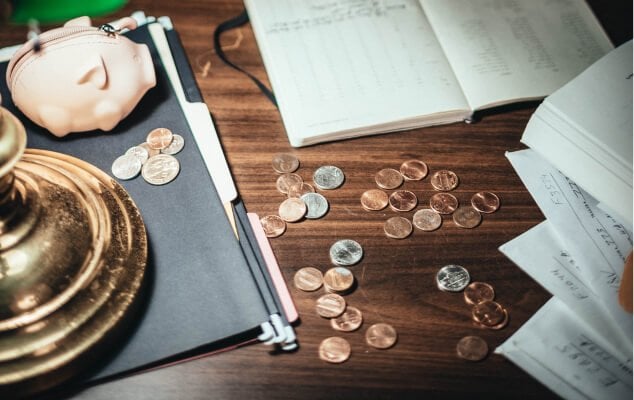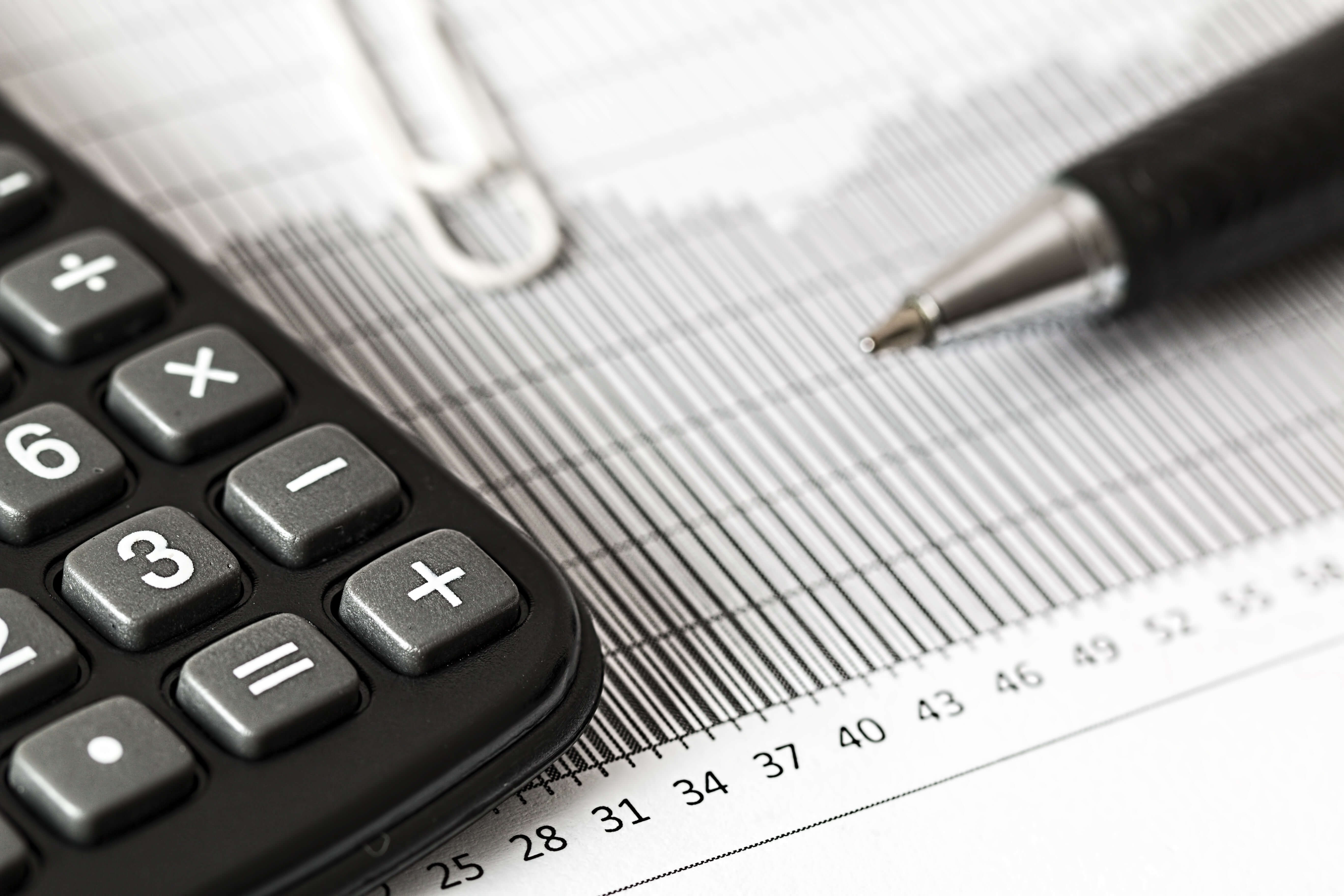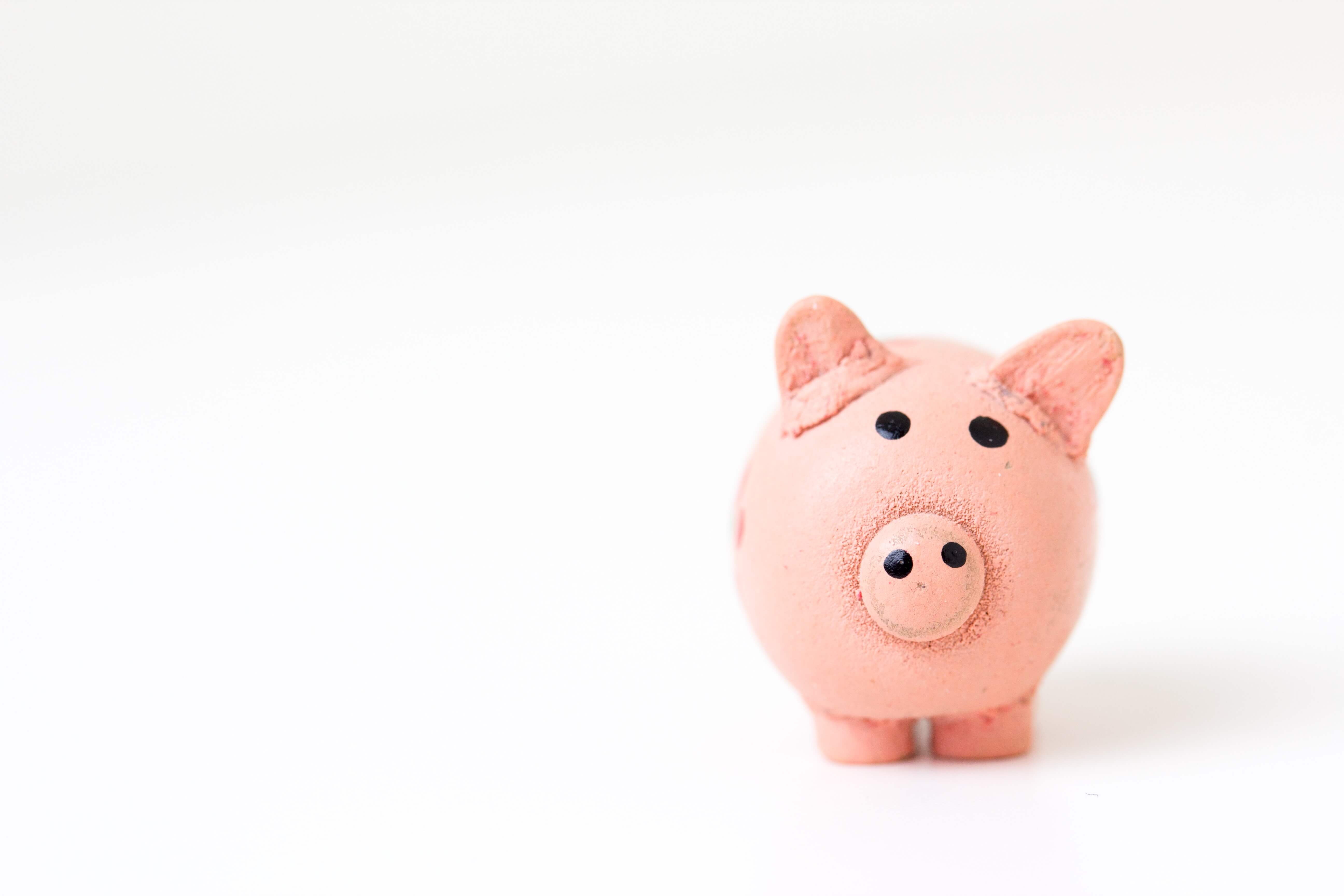Cover Photo by Fabian Blank on Unsplash
If one is asked about his or her life goals, it is not surprising to hear financial security as one of them. When seeking employment or deciding which company to work for, financial security is one of the topmost considerations. Financial security doesn't just mean having more money - it means having enough to cover your lifestyle and your life goals financially.
Monitoring and handling money responsibly is part and parcel of adulthood. However, though this seems a standard of how it should be, not everyone is doing good in this job. For various reasons, many find it challenging to monitor his spending, save money, and much more when it comes to growing assets. The question of how to be financially stable then comes.

Photo by Dziana Hasanbekava from Pexels
To be financially stable, financial planning is a crucial step one has to make. It involves monitoring your living expenses, saving money, and growing your money to attain financial security. In terms of growing assets, there’s a wide variety of investment vehicles available in the market suited for the different personalities and goals of individuals.
Here’s a quick guide on some of the investments you may get yourself for your long-term goals. Each investment vehicle would have its own pros and cons, and investing in any of it would require understanding and research.
Types of Investments
1. Stocks
This is a type of investment that represents ownership in a corporation. When a company goes public, it offers shares that people can buy. This may be common stock or preferred stock. In the Philippines, this is governed by the Philippine Stock Exchange. You earn money from stocks in two ways:
- Buy it at a low price and then sell it when its stock price goes high.
- Through the Dividends. Dividends are part of the company’s earnings paid out to all shareholders. As mentioned earlier, when you purchase stocks, you gain a share in the company. Stocks offer a good opportunity to make wealth. You may buy at a low price then sell it once its value doubles, triples, or even more. The downside of this investment type is that your earnings depend on market performance. It is volatile. To purchase, contact stock brokers registered with the PSE. It is good to note that major commercial banks also have their own stock brokerage arm. You can choose which one you are more comfortable work with.
2. Bonds
By definition, a bond is a fixed income instrument that represents a loan made by an investor to a borrower (typically corporate or government). In simple terms, you are lending money to the government, in the case of government bonds, or to corporations, if corporate bonds. The borrower will then pay you with a specific interest rate at a specified time or on the maturity date. Bonds allow capital preservation and at the same time provide a predictable income stream. However, one of the risks with Bonds is the inflation risk. If the inflation swings upwards, it will affect the purchasing power, which is a downside for bondholders since they are receiving a fixed interest rate. To invest, contact Retail Treasury Bonds-issuing banks.
3. Mutual Fund
With a mutual fund (MF), an investment company pools funds from different investors and then have the funds managed by a professional fund manager. MF companies charge entry and management fees. Unlike with stocks, the fund manager or managers will be the one/s to decide which investment vehicles to be purchased with the pooled fund. Mutual Funds also have different types such as Stock/Equity Funds, Bond Funds, Balanced Funds, and Money Market Funds. Each caters to different goals, timeframe, and risk appetite.
4. Real Estate
Another type of asset you may invest in is properties. This may be residential or commercial property. You read it right. By buying that house and lot for sale, you are also growing your wealth. A house and lot can work more than being a permanent residence for you and your family. It can be an income stream for you, too. You can have your purchased property rented out on a daily or weekly basis if it’s located near a high tourism spot, or have it leased out for a longer period if it’s in a highly-populated area.
Flipping is another way to earn from real estate. This means buying a property with the intention of selling it for a profit. One of the keys to real estate investment is its location. Choose a property located strategically in developed or developing areas just like Lessandra communities. It would also be advantageous if the location is near tourism areas to give you options on how you can make most of your property and the type of market you want to tap, may it be for short-term renting, long-term leasing, or selling. A house and lot near conveniences such as commercial centers, hospitals, and transport will also appreciate its value. Buying an affordable home in pre selling stage will be beneficial for you, too, since this is more economical than a ready-for-occupancy home.
5. Variable Universal Life Insurance
Variable Universal Life Insurance or VUL is another form of investment. It's a form of life insurance wherein a portion of your fund is invested in either bonds or stocks, or a mix of both, handled by the company's fund manager. A financial advisor would assist you in getting the right VUL, this would include an assessment of your financial health. An advantage of getting a VUL is you can decide to start with minimum payments, especially when you've just started balancing savings and living expenses.
VUL works for retirement planning or preparation for a child's education. It is also used for estate planning. Another advantage of life insurance is the protection it provides, which covers not only death benefits but medical bills.
Above are only some of the common types of investments in the Philippines - there are more. But how is the current financial management of Filipinos nowadays?
In the Philippines, wealth and financial management are not integrated with the curriculum unless one is taking a business-related course. This could be one of the reasons why, in general, Filipinos do not have a grasp of this concept at a young age. According to Francis Kong, a renowned author and speaker, one of the reasons why Filipinos do not invest is because of financial illiteracy. This is echoed by other financial advocates. Filipinos are not well-informed on investment tools. This, on top of not having the right mindset and attitude, are the reasons why even those with enough money do not have their own investments. In 2020, Bangko Sentral ng Pilipinas (BSP) Governor Benjamin Diokno cited results from the 2019 Financial Inclusion Survey wherein it was stated that “75% or 54 million Filipinos do not have investments”. According to the BSP Gov., many have yet to realize the value of having an additional income source.
Given that there is little knowledge in this arena, there is also a necessity to educate people on the advantages of investing money instead of just relying on regular earnings.

Importance of Investing
1. Grow Your Money
One definitely needs cash and easy access to it, not only for the daily necessities and current expenses but also for emergency purposes. Liquidity and emergency savings fund, after all, are vital for everyone. However, if you intend for income growth, putting it all in the bank as savings account for the longest time is not a smart idea. Investment vehicles provide the possibility of a higher rate of returns than banks do in the long run. Most commercial banks offer an annual interest of less than 1% for a regular savings account while for investment vehicles, it can range from 2% to 10%, or even higher. To be financially stable, you have to put money in an avenue where it can possibly earn sizably in the long term.
2. Plan for Retirement.
While gainfully employed, you should also be setting aside money for retirement. Sustaining one’s needs is easy and doable when one has a steady and regular income, but what happens when this is no longer the case? It is highly important to look after your personal finances soonest possible and become financially stable to support you during the retiring years. Set aside a portion of your income for retirement savings. Your retirement savings will be the key to a comfortable life in the retirement period. Retirement, as they say, is the longest holiday in one’s life. If it’s going to be a satisfying time or not will depend on how well you prepare for it.
3. Reach Financial Goals
Investing can help an individual reach one’s financial goals and become financially stable. An example of financial goals is buying a property, may it be an affordable house and lot or an expensive condominium. For parents or married couples, it can be their children’s or future children’s college education. For young professionals, the objective may be starting a business. Different individuals have different plans as they go through life, but at each stage, money would more or less play a huge part. Varied assets would help in achieving financial stability timely. Your financial situation would depend not only on your monthly expenses and income but also on good financial habits.
While it is highly recommended to have varied assets, there are a few things that you need to remember before jumping to ventures.

Photo by Adeolu Eletu on Unsplash
How to be financially stable
1. Draw Your Budget
It is important to know your current financial status before starting an investment. What is your monthly household expense and what are your income sources? Get a whole picture of it and understand your cash flow. List down your total monthly income, monthly spending, including your variable expenses. How much money is left after all the expenses? What are the items that can be cut down to increase the savings portion? Draw up a budget plan and follow it religiously. Sticking to a financial plan might not be easy – this would require discipline. When you are tempted to veer away from your budget strategy, remember your long-term goal.
2. Pay off Bad Debt
There is a difference between good debt and bad debt. Good debt is money owed that can potentially help increase wealth or grow the net worth in the future. A loan used in starting a business is considered a good loan. A mortgage is also a good loan as a house and lot is an asset. Aside from this, property value tends to increase every year.
Bad debt, on the other hand, is money owed which was used to finance a consumer good, does not increase net worth. An example of this is credit card debt. A credit card debt is a liability, and as it accumulates, its interest rate also does.
Before getting into a new investment, pay off first the bad debt and then focus on growing your money there onwards. Being debt-free is a start to financial freedom.

Photo by Karolina Grabowska from Pexels
3. Know Your Risk Appetite.
Investments offer a potential of high earnings, but it, too, comes with risks. As a rule of thumb, the higher the returns, the higher the risk. And the lower the return, the lower the risk.
Are you conservative or aggressive in investments? Would you pursue a type that comes with a high risk of losing money? Or would you rather want a safer option, such as government bonds? Money saved should be invested in something you are comfortable with and prepared for in case of losses.
4. Emergency Fund and Rainy Day Fund
From the term itself, this is the fund allocated for the main purpose of answering immediate unforeseen or unwanted scenarios such as sudden loss of employment or even medical emergencies. Since investments are for medium and long-term goals, there is a high chance that you will not be able to access them on short notice, or you may suffer losses if suddenly withdrawn. Create a separate savings account and set it up as an emergency fund before buying different forms of assets. There is no hard and fast rule in the amount of this fund, but it is recommended that it be equal to three to six times worth of your household expense.
A rainy day fund is similar to an emergency fund but it is intended to cover less serious scenarios and smaller expenses like a sudden vehicle repair or maintenance. A separate fund for this immediate but not necessarily huge expense would help in stabilizing your personal finances.
Building one’s financial portfolio doesn’t just happen overnight. It is a conscious effort that needs planning, research, and discipline, among all other factors. To be financially stable means that: you are able to pay bills timely, have separate savings accounts, a retirement plan, and have extra money for your needs and wants.
It is high time for us, Filipinos, to learn how to maneuver our future through financial literacy. Achieving financial security is not just about having more money. It is also about growing your assets. Investments are not an emotional decision. You need to have a clear objective in mind and a strategy on how to get on to it. Choose the investment vehicle that suits your personality, your financial capability, and the one that would fit your needs.
Your financial decisions now would determine the financial situation you'd be in in a few years' time.
Lessandra Blog is a compilation of lifestyle, community, and home-related articles. For real estate investment and tips on how to buy house and lots in the Philippines, visit Lessandra’s Lifestyle and Home Investments section. To know more about quality and affordable house and lots in the Philippines, give the property listing section a visit. Live in best, live in Lessandra.
Sources:
https://business.inquirer.net/230072/filipinos-not-invest
https://www.gmanetwork.com/news/money/economy/761120/bsp-s-diokno-75-or-54m-filipinos-don-t-have-investments/story/
https://www.investopedia.com/terms/b/bond.asp
https://pesolab.com/buying-ph-stocks-how-to-invest-in-stock-market/
https://grit.ph/




